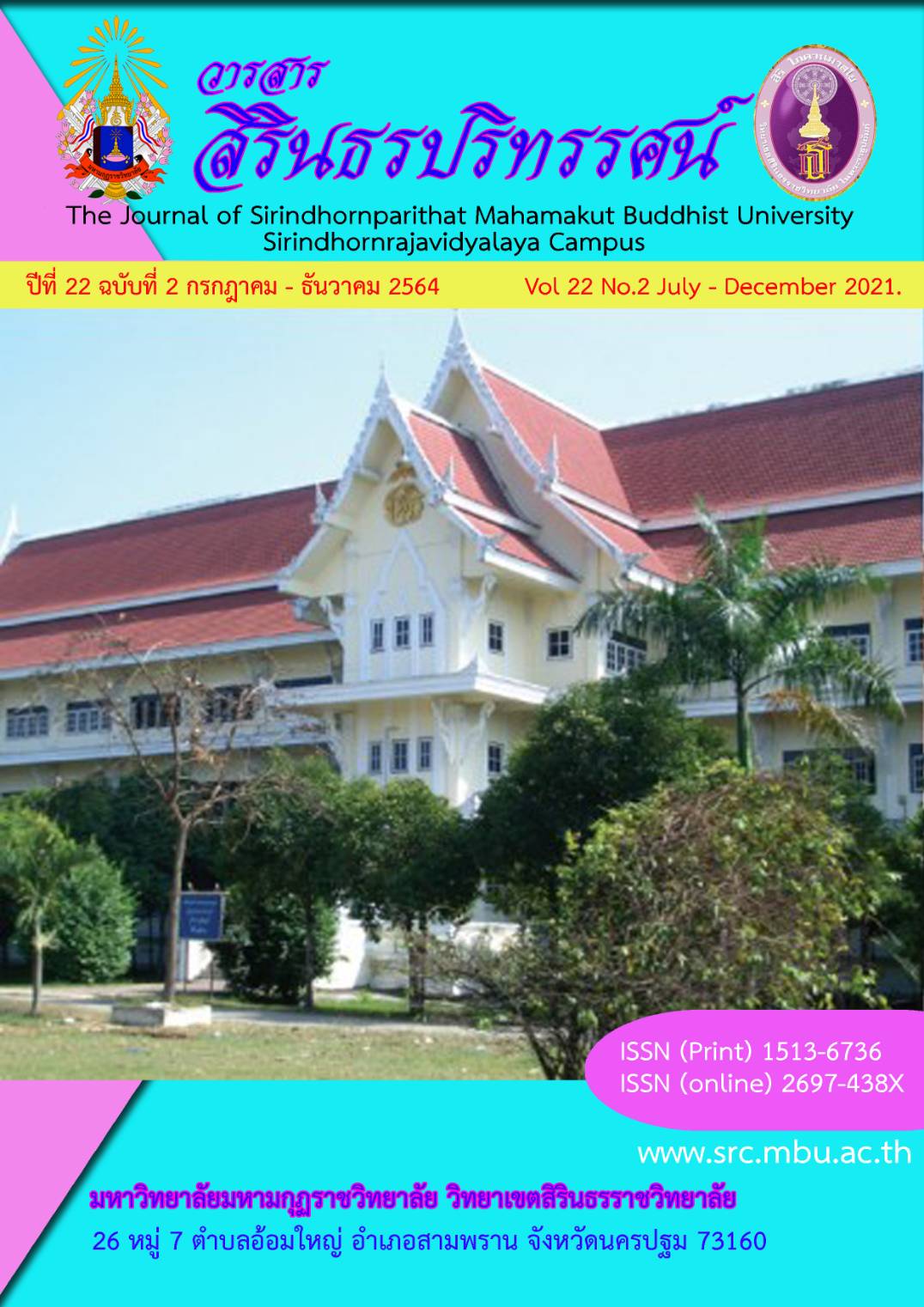POLITICAL BEHAVIOR DEVELOPMENT MODEL OF PEOPLE THAT AFFECTING TO THE DECISION IN GENERAL ELECTION
Keywords:
Development, Political Behavior, PeopleAbstract
Objectives of this research were: To study people’s political behavior, To study factors supporting development of people’s political behavior, To propose a development model of people’s political behavior in general election decision making in line with Buddhadhamma applying the mixed methods research: Data of qualitative research were collected from 17 key informants by in-depth-interviewing. The data of quantitative research were collected from 400 samples and analyzed by descriptive statistics: frequency, percentage, mean, and standard deviation. Findings were as follows 1) The people’s political behavior in general election decision making by overall were at high level. The means considered in order from high to low were as: Using the right to vote, Participation in political networking, Political support, People followed the political news and information. 2) Factors supporting the people’s political behavior in general election decision making were at minimal level. The means considered in order from high to low were as: practice, knowledge and attitude. 3) The development model of people’s political behavior in general election decision making according to the principle of Yonisomanasigara; People must use analytical process to separate all received political data on the basis of cause and effects to solve the direct problems according to the wanted objectives. Decision making must be made on the basis of benefits for all by adhering to the right ethics that could be checked. It is the thinking process affecting decision making in general election.
Keywords: Development; Behavior Political; People
References
ดิลก บุญอิ่ม. (2561). การใช้หลักโยนิโสมนสิการแนวอริยสัจเป็นฐานการเรียนรู้ด้วยตนเองในการดำรงชีวิต. วารสาร มหาวิทยาลัยมหามกุฎราชวิทยาลัย วิชาการล้านนา, 7(2), 72-81.
ชัยยศ จินารัตน์ และคณะ. (2562). การสื่อสารออนไลน์ที่มีผลต่อความรู้ทางการเมืองและการมีส่วนร่วมทางการเมืองแบบดิจิทัล. วารสารการบริหารการปกครองและนวัตกรรมท้องถิ่น, 4(1), 237-238.
ปฏิมาภรณ์ อรรคนันท์ และคณะ. (2560). วัฒนธรรมทางการเมืองกับการพัฒนาประชาธิปไตย.วารสารมนุษยศาสตร์และสังคมศาสตร์, 8(2), 108-130.
พรศักดิ์ ผ่องแผ้ว และ พลศักดิ์ จิรไกรศิริ. (2516). วัฒนธรรมทางการเมืองไทย. กรุงเทพมหานคร: สมาคมสังคมศาสตร์แห่งประเทศไทย.
พระครูปลัดเกษฎา ผาทอง และคณะ.(2562). วัฒนธรรมทางการเมือง : แนวคิดสู่การพัฒนาสังคมไทย. วารสารบัณฑิตศึกษา, 6(2), 14-27.
พิชัย วาสนาส่ง. (2523). บทบาทของกลุ่มผลประโยชน์ต่อประชาธิปไตย. ใน สรุปการอภิปรายเรื่องผลกระทบจากบทบาททางสื่อมวลชนที่มีต่อการพัฒนาระบอบประชาธิปไตย. (น 2). การประชุมทางวิชาการคณะรัฐศาสตร์ : มหาวิทยาลัยรามคำแหง.
ภูสิทธ์ ภูคำชะโนด. (2562). การพัฒนาชุมชนวิถีประชาธิปไตยตามหลักธรรมาภิบาล: หลักความโปร่งใส ของประชาชนในพื้นที่เขตดุสิต กรุงเทพมหานคร. วารสาร มหาวิยาลัยมหาจุฬาลงกรณราชวิทยาลัย สังคมศาสตร์ปริทรรศน์, 8(4), 278 279.
ศักดิ์สิน อุดมวิทยไพศาล และคณะ. (2562). กรอบแนวคิดเชิงทฤษฎีพฤติกรรมทางการเมืองของประชาชน. วารสารมนุษยศาสตร์และสังคมศาสตร์, 10(1), 293-306.
Downloads
Published
Issue
Section
License
Copyright (c) 2022 Mahamakut Buddhist University

This work is licensed under a Creative Commons Attribution-NonCommercial-NoDerivatives 4.0 International License.
บทความที่ได้รับการตีพิมพ์เป็นลิขสิทธิ์ของ มหาวิทยาลัยมหามกุฏราชวิทยาลัย วิทยาเขตสิรินธรราชวิทยาลัย
ข้อความที่ปรากฏในบทความแต่ละเรื่องในวารสารวิชาการเล่มนี้เป็นความคิดเห็นส่วนตัวของผู้เขียนแต่ละท่านไม่เกี่ยวข้องกับหาวิทยาลัยมหามกุฏราชวิทยาลัย วิทยาเขตสิรินธรราชวิทยาลัย และคณาจารย์ท่านอื่นๆในมหาวิทยาลัยฯ แต่อย่างใด ความรับผิดชอบองค์ประกอบทั้งหมดของบทความแต่ละเรื่องเป็นของผู้เขียนแต่ละท่าน หากมีความผิดพลาดใดๆ ผู้เขียนแต่ละท่านจะรับผิดชอบบทความของตนเองแต่ผู้เดียว




